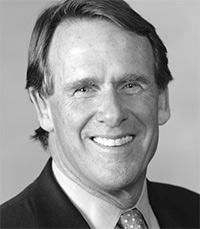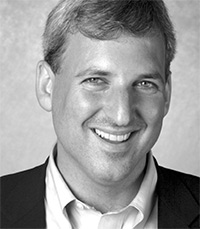President Obama isn’t the big investor in education he has claimed to be on the campaign trail, Mitt Romney’s education advisor, Phil Handy, argued in a debate Monday with his Democratic counterpart. Obama advisor Jon Schnur countered that the math behind Romney’s budget plan virtually ensures there will be cuts to education if the former Massachusetts governor is elected.
Both Handy and Schnur used the debate to crystallize the differences between their respective candidate’s educational philosophies, which were sometimes blurred when Romney and Obama themselves debated earlier this month.
The debate was hosted by hosted by Teachers College, Columbia University, and sponsored by Education Week. (Disclaimer: The Hechinger Report is published by an independent institute based at Teachers College.)
Handy is a former chairman of Florida’s State Board of Education and a member of the Board of Directors at the Foundation for Excellence in Education, a nonprofit education reform group started by former Florida Gov. Jeb Bush. Schnur is the co-founder and former CEO of New Leaders, a group that trains principals, and current executive director of America Achieves, a nonprofit aiming to improve school systems.
Schnur said Obama would continue to put more resources toward education, repeating one of President Obama’s standard arguments that investing in education will improve the economy. But Handy attacked the notion that Obama’s spending on education, including the $4.3 billion Race to the Top program, has been an investment. He argued that the administration’s programs have focused on short-term funding solutions, which have run out or will soon do so. “You can’t put a lot more money into it on a short-term basis and call it an investment,” Handy said.
He also echoed Romney’s claim from the first presidential debate earlier this month that a Romney administration would avoid cutting education. He said it would be possible to reduce the country’s deficit by changing entitlement programs while leaving education spending alone. He added, however, that Romney would not increase funding for early education. (Obama has pushed for more than $500 million for an Early Learning Challenge Fund, which Congress passed this year.) “You just can’t keep adding to the deficit,” Handy said.
Schnur countered that the president has made long-term investments, too, including large increases for the Pell Grant program to help low-income students pay for college. He also pointed to Obama’s modest increases in education funding since being elected. And if Romney wants to keep promises he’s made to increase defense funding and Social Security protections while still reducing the deficit, Schnur argued, it’ll be impossible not to touch education. “The Romney campaign on education is imprisoned by the Romney budget policy,” he said. “There’s no way the math holds up.”
Schnur said significant reductions to discretionary programs would have an impact on other programs related to poverty and children—such as federally subsidized school breakfasts and lunches for low-income children. Schnur also attacked Romney’s school choice plan as “meaningless,” saying it would be impractical to run on a national level.
Handy criticized the No Child Left Behind waivers granted by the Obama administration, which have allowed states to avoid sanctions for not reaching the law’s target for universal proficiency by promising to enact other education reforms. He described the waivers as too prescriptive and said allowing states to set different standards for different ethnicities was “soft bigotry”—echoing a favorite phrase of George W. Bush’s, who often spoke of the “soft bigotry of low expectations” in U.S. public education.
Schnur defended the waivers by evoking a widespread criticism of the No Child Left Behind law: As accountability ratcheted up, research found that states lowered standards in order to meet targets. “What you’re saying falls into the traps of the worst parts of No Child Left Behind,” he said.
The two men also squared off over college costs. Schnur praised Obama’s move to reduce the amount students must pay on their college loans once they enter the workforce. The loans of students who make continuous payments would be forgiven after 20 years instead of 25. Handy warned that forgiving student debt could become a whole new entitlement program. And although he supports the Pell Grant program, he also repeated a frequent Republican argument that the grants are driving up the cost of tuition.
Both men described candidates who had made education a top priority in their public lives—Obama as a senator and during his first term as president, and Romney as governor of Massachusetts.
But Romney’s belief that the federal government should stay out of the way of state leadership in education is problematic to Schnur. “I might vote for Mitt Romney for governor,” he said. “But I don’t think that’s a basis for electing a president.”





